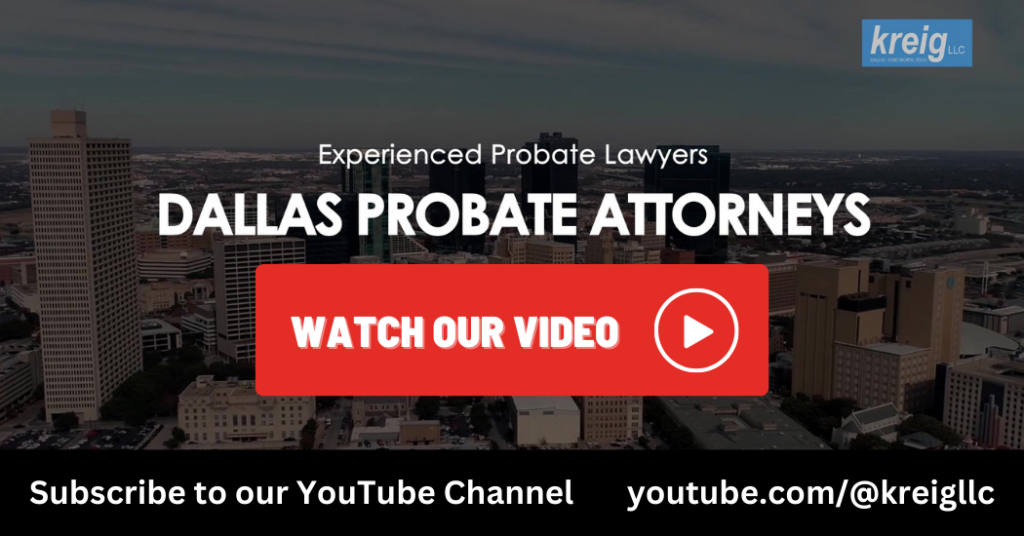The probate process involves settling the decedent’s financial obligations, paying debts and taxes, identifying and appraising assets, and distributing the remaining assets to the rightful beneficiaries or heirs.
This is a multifaceted process that involves a careful balance of probate laws, family relationships, beneficiary interests, and executor responsibilities.
One particularly crucial aspect of the probate process is the removal of the executor. For example, if an executor has a conflict of interest, can they be removed from the role as executor? If removed, what options do they have? The recent Estate of Turpin, No. 04-22-00484-CV (Tex. App. – San Antonio [4th Dist.] 2023) case helps to answer these questions.
Facts and Procedural History
This case involves a probate dispute over estate management and removal of the executor. A husband and his wife were married and had two daughters, Daughter 1 and Daughter 2.
The wife died in January 2021 and the husband died six days later. The wife’s will gave her estate to her daughters, to be held in trust for her husband’s benefit. The will also named Daughter 1 as the independent executrix of the mother’s estate.
Prior to their parents’ death, Daughter 1 and her mother opened a joint bank account at Security State Bank & Trust. The account had a balance of $332,284.83. After the husband died, Daughter 1 closed the bank account and took possession of the funds.
Daughter 2 filed a motion to remove Daughter 1 as executrix of the estate, alleging that Daughter 1 had a conflict of interest because she was a co-owner of the bank account. Daughter 2 also alleged that Daughter 1 had not properly managed the estate.
The probate court granted Daughter 2’s motion and removed Daughter 1 as executrix. Daughter 1 appealed the decision.
About Removing an Executor in Texas
Section 404.0035 of the Texas Estates Code serves as the cornerstone in addressing how to remove an executor and when they can be removed. This statute confers on the probate court the authority to remove an independent executor under specific circumstances.
It sets out the grounds for removal related to an executor’s alleged conflict(s) of interest. It says that the interested parties a means to challenge questionable actions an executor may have committed that could cause harm to the estate. Furthermore, it explains that the interested party is not required to show that damages occurred, only that improper action has occurred.
In this case, after testimony from Daughter 2 that her sister committed breach of contract, breach of fiduciary duty, constructive fraud, undue influence, and unjust enrichment, the court removed Daughter 1 as the independent executrix.
Appealing Removal as an Independent Executor
So what are the options when someone is removed? In the event of removal as the independent executor, it is possible to appeal the decision in an appellate court. This is the first thing the executor has to consider.
That is what happened in this case. After removal, the first daughter appealed the decision, stating that the bank account in question was opened only by their mother, with her only acting as the driver, meaning that the account in question was its own separate account. Furthermore, the daughter pointed to the fact that the bank account in question, and other accounts belonging to their parents, named Daughter 1 as the payable-on-death beneficiary years before their deaths.
Based on the evidence and statements that were presented, the appellate court reversed the trial court’s decision, holding that Daughter 2 had not shown that Daughter 1 had a conflict of interest or that she had not properly managed the estate. The appellate court found that the bank account was a separate asset from the estate and that Daughter 1’s interest in the account did not create a conflict of interest.
The court also found that there was no evidence that Daughter 1 had mismanaged the estate. The appellate court thus remanded the case to the trial court for further proceedings.
Note, that conflict within family is not a strong enough reason to remove someone as the independent executor of the estate.
Getting Reappointed as Executor
The executor could also seek to be reappointed as the administrator. The estate code also provides for this. And the courts will often reappoint an administrator if it can be shown that this is in the estate’s best interest.
For example, had the trial court’s finding of a conflict been upheld, the daughter may have sought to be reappointed once she remedied the conflict of interest. In this case, the alleged conflict was a bank account that passed outside of probate. If the bank account was used to pay estate expenses, such as attorneys fees, and depleted, it may be that there is no conflict of interest remaining as to the bank account.
As this illustrates, getting reappointed often requires time to pass or some identifiable event that can be brought to the court’s attention. This is another option that can be available in the right circumstances.
The Takeaway
The probate process entails navigating various legal, familial, and fiduciary considerations. The culmination of this intricate process occurs through probate proceedings following an individual’s passing. Central to this process is the pivotal task of executor removal, a subject exemplified by this case.
The case underscored the importance of addressing conflicts of interest and alleged improper actions by executors, allowing interested parties to safeguard the estate’s integrity. In this instance, the appellate court’s reversal of the removal decision reinforced the principle that familial disagreements alone may not suffice for executor removal, emphasizing the significance of substantial evidence in making these determinations. The Turpin case serves as a clarifying precedent, highlighting the delicate balance between safeguarding beneficiary interests and maintaining executor responsibilities within the probate process.
Our Dallas Probate Attorneys provide a full range of probate services to our clients, including helping with estate planning. Probate is what we do. Affordable rates, fixed fees, and payment plans are available. We provide step-by-step instructions, guidance, checklists, and more for completing the probate process.We have years of combined experience we can use to support and guide you with probate and estate matters. Call us today for a FREE attorney consultation.
Disclaimer: The content of this website is for informational purposes only and should not be construed as legal advice. The information presented may not apply to your situation and should not be acted upon without consulting a qualified probate attorney. We encourage you to seek the advice of a competent attorney with any legal questions you may have.
Don't miss out, get a copy today!












